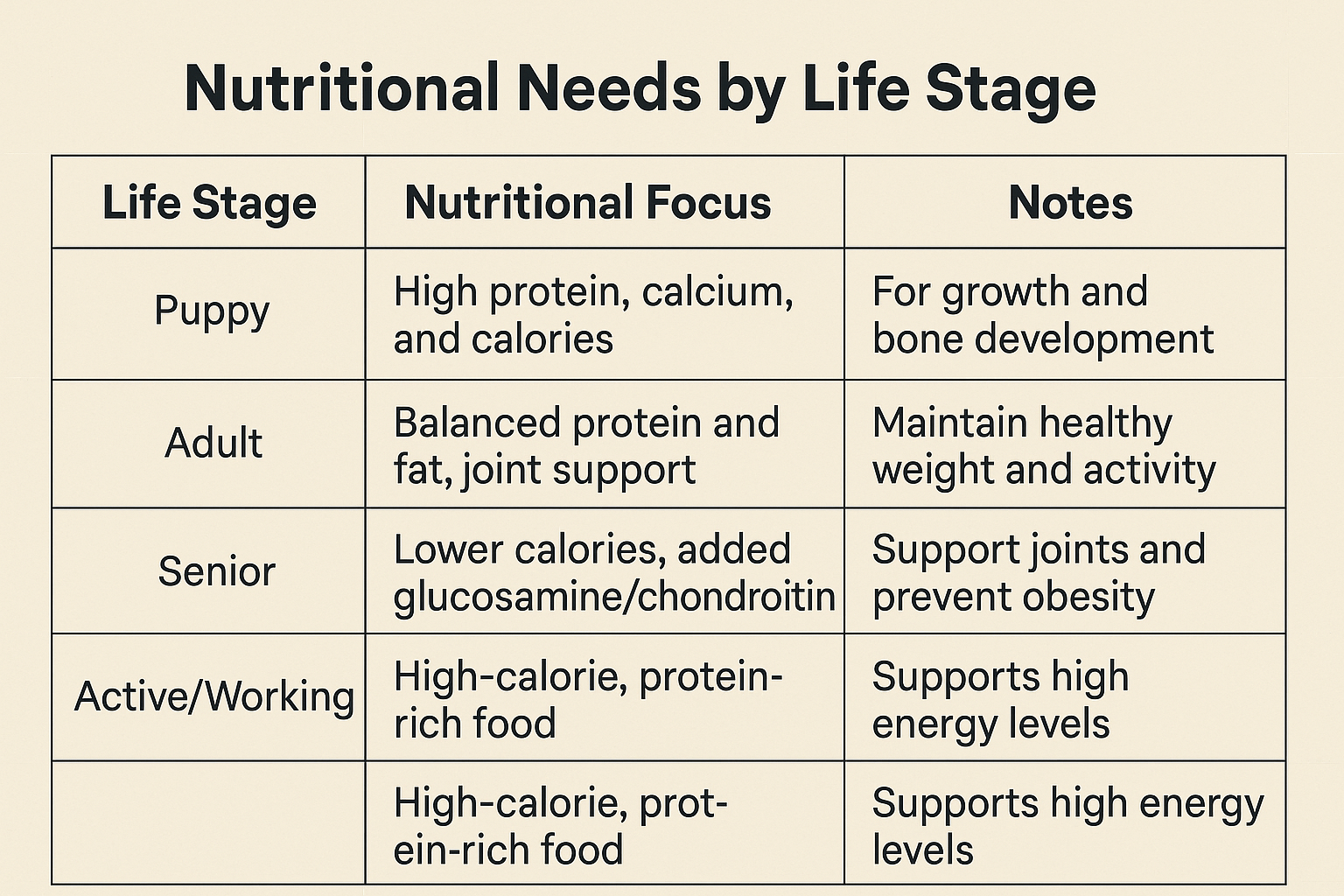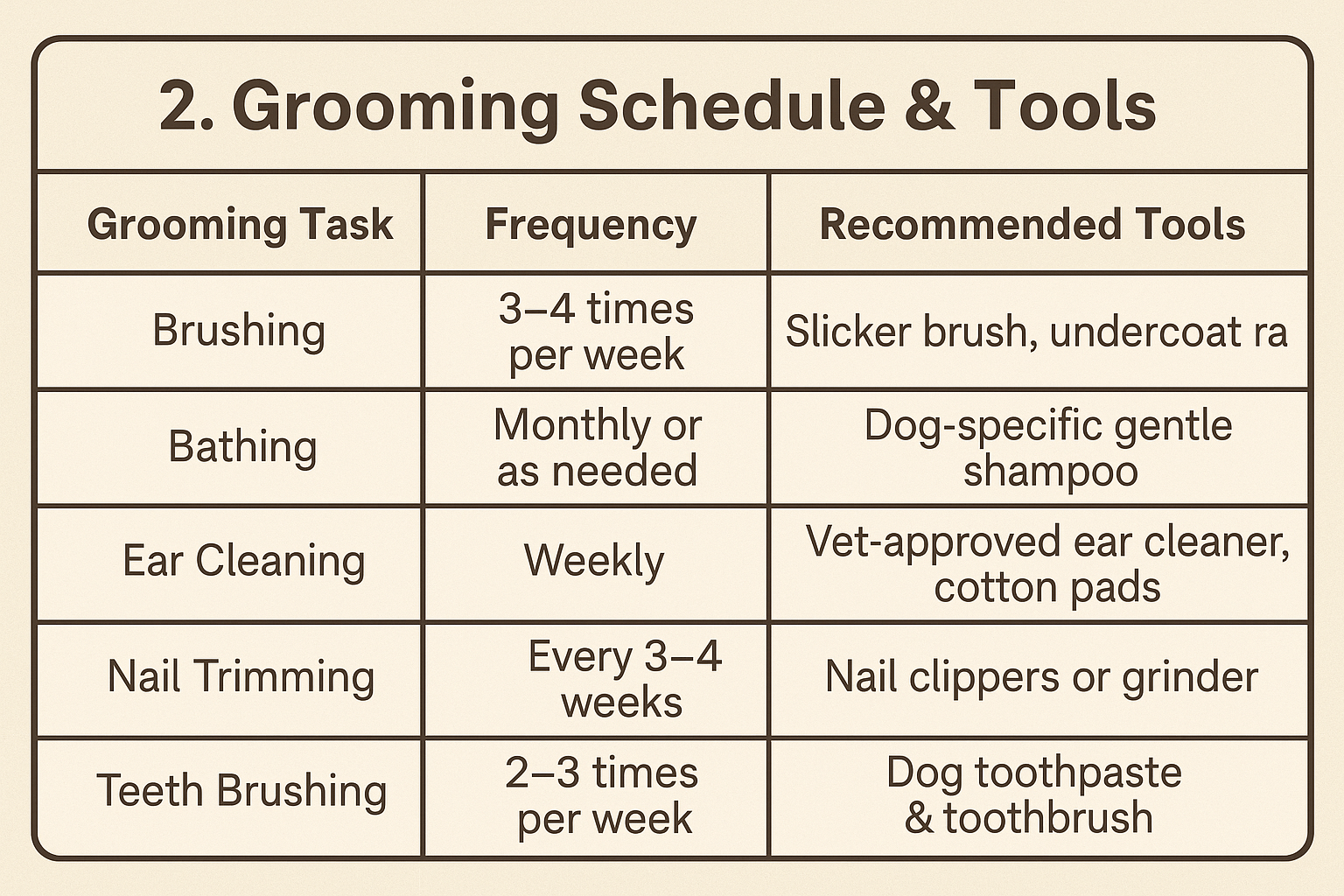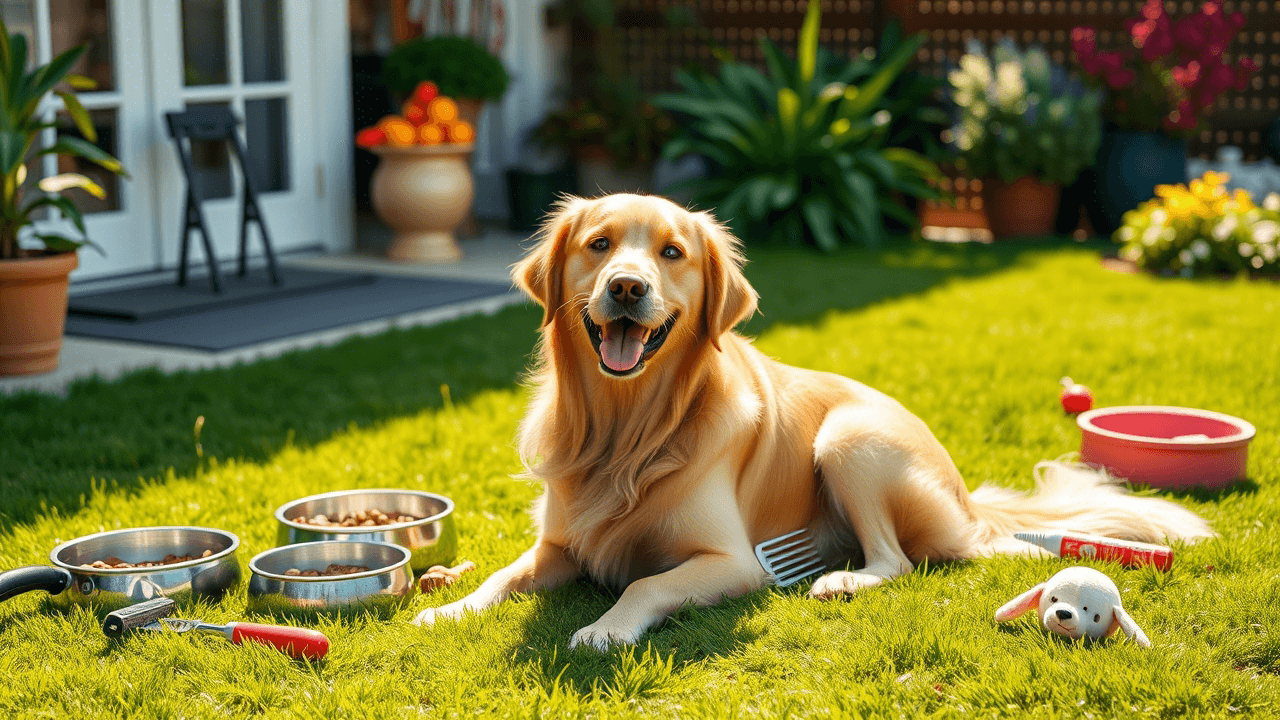Golden Retrievers are among the world's favorite dog breeds due to their loving nature, smartness, and stunning golden coat. Being medium-to-large breed dogs with great energy levels, Golden Retrievers love living with proper nutrition, regular grooming, and good hygiene care. All these elements play a crucial role in their well-being, happiness, and lifespan.
Whether you're a new dog owner or bringing a Golden Retriever home to add to your pack, learning about their individual diet and grooming requirements will help you raise a happy, healthy companion.
Top Dog Food for Golden Retrievers
Golden Retrievers have particular dietary requirements because of their size, energy level, and genetic susceptibility to some health concerns such as joint issues and obesity.
Key Nutritional Needs:
- Protein: Maintains muscle growth and energy.
- Healthy Fats (Omega-3 and 6): Maintains coat health and mental function.
- Glucosamine and Chondroitin: Maintains joint health.
- Fiber: Maintains digestion and a healthy gut.
Types of Food:
- Dry Kibble: Convenient and maintains dental health. Opt for large-breed formulas.
- Wet Food: Hydrating and tasty but lacks dental benefits.
- Raw/BARF Diet: Provides whole-food nutrition but needs to be precisely balanced and vet-approved.
Recommended Brands:
- Royal Canin Golden Retriever Formula
- Orijen Large Breed Puppy/Adult
- Hill's Science Diet Large Breed
- Blue Buffalo Wilderness
Age and Lifestyle Considerations:
- Puppies: Need more protein, calcium, and calories for development.
- Adults: Need balanced energy to keep weight stable.
- Seniors: Might need fewer calories and extra joint support.
- Active Dogs: Need calorie-dense formulas.

Feeding Tips:
- Feed 2–3 times a day based on age.
- Use a measuring cup to prevent overfeeding.
- Don't free-feed to avoid obesity.
- Always offer fresh water.
Most Preferable Dog Treats
Treats are a crucial part of training and bonding but need to be used judiciously to prevent excess calories.
Healthy Treat Options:
- Low-calorie training treats
- Single-ingredient treats such as freeze-dried liver or sweet potato
- Dental chews to promote oral health
- Homemade alternatives such as apple slices or carrots (in moderation)
Recommended Brands:
- Zuke's Mini Naturals (excellent for training)
- Wellness Soft Puppy Bites
- Blue Buffalo Bits
Treating Tips:
- Treats should not exceed 10% of daily caloric intake.
- Refrain from high-fat and high-sugar treats.
- Introduce new treats slowly and monitor for allergies.
Homemade Food for Golden Retrievers
Most owners prefer to cook at home for their dogs because they have more control over the ingredients and freshness.
Healthy Home Cooking:
- Boiled chicken, rice, and vegetables (carrots, green beans)
- Ground turkey, pumpkin, and oats
- Salmon, sweet potatoes, and spinach
Vet-approved Supplements:
- Fish oil for coat and brain health
- Glucosamine for joints
- Multivitamins to supplement nutritional deficiencies
Foods to Limit or Avoid:
- Chocolate
- Grapes and raisins
- Onions and garlic
- Cooked bones
- Fat trimmings and processed foods
Homemade Feeding Tips:
- Balance protein, carbs, and fats.
- Rotate ingredients to provide variety.
- Work with a canine nutritionist or vet for custom meal plans.
Daily Grooming Tips
Golden Retrievers have dense, double coats that shed on a regular basis. A regular grooming routine keeps their coat healthy and minimized shedding.

Brushing:
- Brush at least 3–4 times a week.
- Use a slicker brush and undercoat rake.
- Brush more often during shedding seasons (spring/fall).
Bathing:
- Bathe once a month or as necessary.
- Use dog-specific shampoos that are mild and moisturizing.
Ear Care:
- Inspect and clean ears weekly with vet-approved ear solution.
- Dry ears well after swimming or baths to avoid infection.
Nail Trimming:
- Trim every 3–4 weeks with dog nail clippers or a grinder.
- Avoid cutting into the quick.
Dental Hygiene:
- Brush teeth 2–3 times a week.
- Use dog-specific toothpaste and toothbrushes.
- Dental chews may be used to supplement brushing.
Hygiene Tips
Keeping your Golden Retriever clean prevents infection and keeps your home clean.
Home and Dog Cleanliness:
- Wash food and water bowls daily.
- Launder bedding and toys weekly.
- Clean paws after walks to avoid tracking dirt inside.
Parasite Prevention:
- Apply vet-recommended flea, tick, and heartworm prevention throughout the year.
- Inspect the coat and skin for ticks after walking.
Anal Gland Care:
- Some dogs require manual expression of anal glands, most commonly performed by a groomer or vet.
Professional Grooming Visits:
- Weigh professional grooming every 6–8 weeks for thorough coat care and trimming.
Additional Care Tips
Care goes beyond food and grooming to general wellness and security.
Vet Visits:
- Plan annual checkups (twice yearly for seniors).
- Be current with vaccinations and dental cleanings.
Environment:
- Maintain living spaces clean and hazard-free.
- Restrict access to toxic plants, chemicals, and sharp objects.
Monitoring Health:
- Monitor for signs such as lethargy, loss of appetite, vomiting, excessive scratching, or changes in behavior.
- Early diagnosis of problems results in improved outcomes.
Conclusion
Taking care of a Golden Retriever is a rewarding experience filled with love, loyalty, and companionship. Their energetic personalities and loving nature make them one of the most beloved breeds on the planet—but they do need commitment and diligent care. By providing a well-balanced diet, engaging in regular grooming, and maintaining excellent hygiene, you’re setting up your Golden for a long, joyful life. Consistent routines, regular vet visits, and lots of affection go a long way in keeping them healthy.
Final Thought: A well-cared-for Golden Retriever will pay back years of tail wags, playful tricks, and unwavering affection. The time you invest in their care comes back to you one hundred times in loyalty and happiness.
Frequently Asked Questions (FAQs)
1. What is the best food for a Golden Retriever?
2. How often should I groom my Golden Retriever?
3. Can I feed my Golden Retriever homemade food?
4. What treats are safe and healthy for Golden Retrievers?
5. Do Golden Retrievers shed heavily?
6. How much do I feed my Golden Retriever each day?
7. What are the most important hygiene practices for Golden Retrievers?
8. Are Golden Retrievers suitable for first-time dog owners?
9. How do I avoid health issues in my Golden Retriever?
10. Do Golden Retrievers need professional grooming?

About SniffnTail
SniffnTail is your go-to destination for everything pets. From helpful advice, tips, and insights to thoughtfully selected products and resources, we’re here to support pet owners at every stage of their journey. Whether you're caring for a playful pup, a wise old cat, or anything in between, SniffnTail offers tools and knowledge to make pet parenting easier and more joyful.
Related Articles
 Dog Breeds • 7 mins Read
Dog Breeds • 7 mins ReadCavoodle Dog Breed Guide: The Ultimate Family-Friendly Companion
Discover the Cavoodle dog breed—personality traits, temperament, grooming needs, exercise requirements, and more. A family-friendly, apartment-loving pup ideal for all dog lovers.
 Dog Breeds • 20-25 minutes
Dog Breeds • 20-25 minutesThe Basset Fauve de Bretagne: A Comprehensive Veterinary Guide to Health, Temperament, and Care
Unlock everything you need to know about the Basset Fauve de Bretagne with this expert veterinary guide. From their unique health needs and dietary requirements to their charming temperament and training tips, Dr. [Your Last Name] provides unmatched depth and scientific backing to help you provide the best possible care for your Basset Fauve.
 Dog Breeds • 7 min read
Dog Breeds • 7 min readBrittany Dog Breed Guide: Personality, Care, and Living Tips
Discover the Brittany dog breed—its affectionate temperament, socialization needs, training difficulty, grooming needs, and more. Learn how to care for this active, family-friendly companion.

